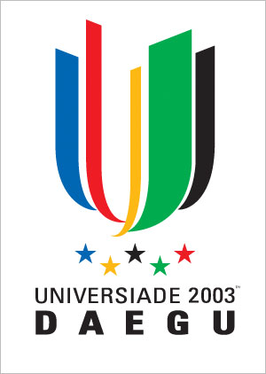This is a list of lists of universities and colleges by country, sorted by continent and region. The lists represent educational institutions throughout the world which provide higher education in tertiary, quaternary, and post-secondary education.

The boxing competition at the 2000 Summer Olympics in Sydney, Australia was held at the Sydney Convention and Exhibition Centre in Darling Harbour. The event was only open to men and bouts were contested over four rounds of two minutes each. Five judges scored the fighters in real time and the boxer with the most points at the end was the winner.

Hankuk University of Foreign Studies is a private research university based in Seoul, in South Korea. HUFS consistently ranks as one of the best universities in South Korea. The university currently teaches 45 foreign languages. In addition, it contains studies in humanities, law, social sciences, business, medical science, natural sciences, and engineering.

The Judo competition at the 1992 Summer Olympics was contested in fourteen weight classes, seven each for men and women. The seven men's weight classes continued to be those first used in 1980. This was the first Olympic competition to award medals to women judoka; women competed in 1988 as a demonstration sport.

The 2003 Summer Universiade, also known as the XXII Summer Universiade, took place in Daegu, South Korea.
The 1989 Federation Cup was the 27th edition of the most important competition between national teams in women's tennis. The tournament was held at Ariake Tennis Forest Park in Tokyo, Japan, from 1–9 October. The United States won the tournament without losing a rubber, defeating Spain in the final, giving the USA their 13th title.

The 2011 AIBA World Boxing Championships was held at the Heydar Aliyev Sports and Exhibition Complex in Baku, Azerbaijan from September 22 to October 10, 2011.
The athletics competition at the 2011 Summer Universiade has been held at the New Shenzhen Stadium in Shenzhen, China from August 16 to August 21, 2011.




